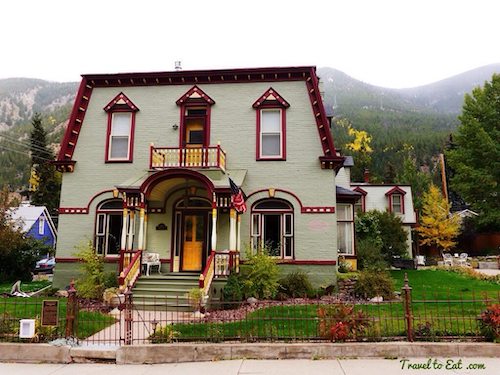
Since we were in Georgetown, I thought I would do a post on the many well preserved Victorian houses in Georgetown. Victorian houses are architecturally commonly referred to as the Victorian Style but this “style” is really a period in history. The Victorian era roughly corresponds to the time when Queen Victoria ruled Britain (1837 to 1901). During this time, industrialization brought many innovations in architecture. There are a wide variety of Victorian styles, each with its own distinctive features. Types of Victorian styles include: Second Empire, Queen Anne, Stick, Shingle, and Richardsonian Romanesque. There are many excellent examples of Gothic Victorian houses in Georgetown which have been lovingly maintained by their residents, not an easy task in the mountains of Colorado.
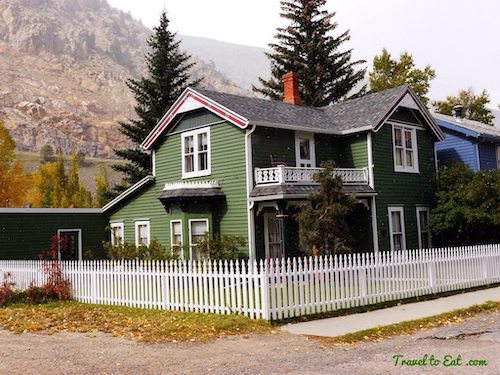
In the early 1950s, the first efforts were made to preserve Georgetown's remaining 19th-century buildings as historic resources. The importance of Georgetown's place in history was given national recognition in 1966 by the Department of the Interior. Through the National Park Service, the towns of Georgetown and Silver Plume were recognized as a National Historic Landmark District (NHLD) and protected to help tell the story of the American West.
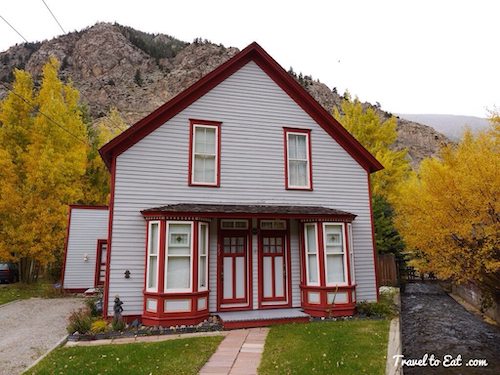
Ecklund House, 927 Rose Street, 1876: This house was built by the Church Brothers and probably designed by Robert Roeschlaub, Colorado's first architect. It was originally designed as a duplex, with each brother living in half the building. Frank Eckland bought it in 1922, connected the two sections, and his family lived here for almost 75 years.
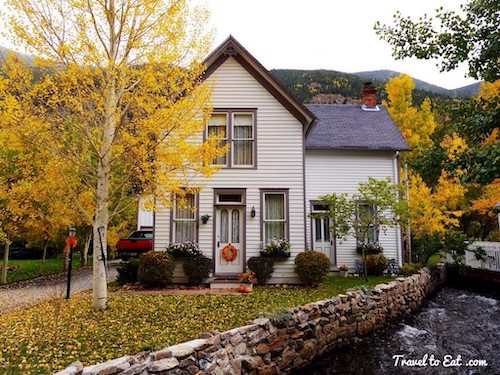
Curtis-Tison House, 920 Rose Street, 1870's: The owner in 1874 was Margaret Curtis. In 1875 she sold it to Mary Tison, wife of John Tison, who owned it until 1910. It was not unusual for houses to be in the wife's name since mining was dangerous and the wives usually outlived their husbands. This house is another example of Gothic Revival in Georgetown.
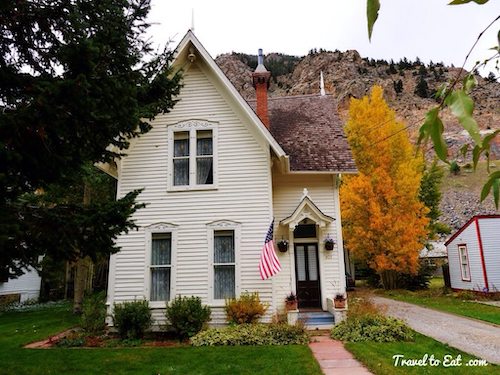
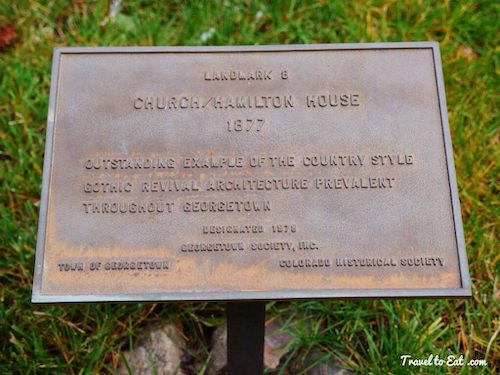
Church/Hamilton House, 921 Rose Street, 1877: This house was built by John Adams Church who commissioned Robert Roeschlaub to build it. This is one of the brothers of the Ecklund House. Church operated a mill in Georgetown and then joined a US Geological Survey team. This house is an outstanding example of Gothic Revival.
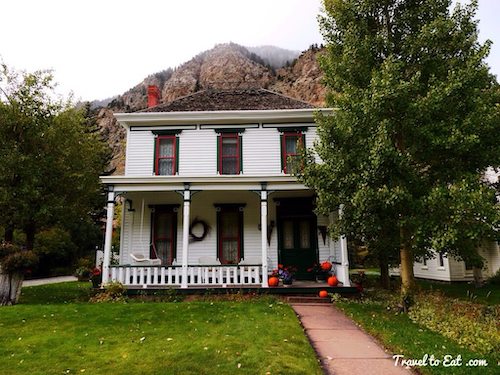
Blackman-Seifried House, 915 Rose Street, 1882: This Italianate style house was built by the builder, August Blackman, who sold it to Henry Seifried, president of the first Bank of Georgetown. His family remained in town until the Depression which forced the bank to close in 1933.
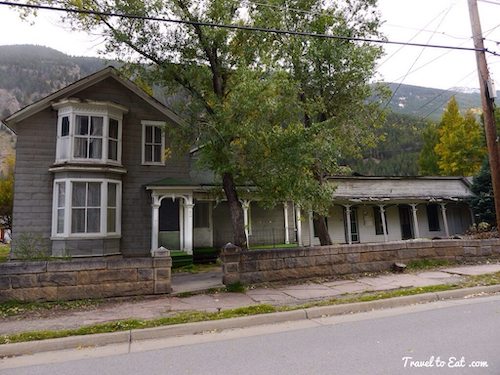
Pollok House and Annex, 910-912 Rose Street, 1876: Doctor Irving Pollok was a physician and surgeon who maintained his office in this home. In 1880 he purchased the adjoining lot and built three houses which were later connected into a triplex.
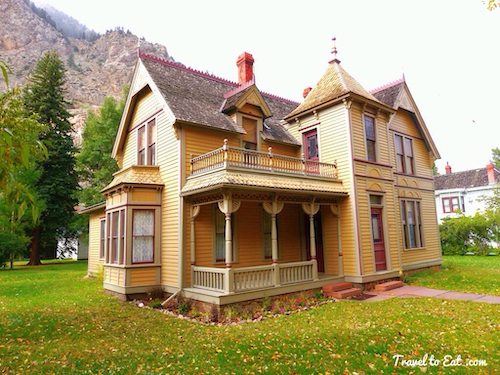
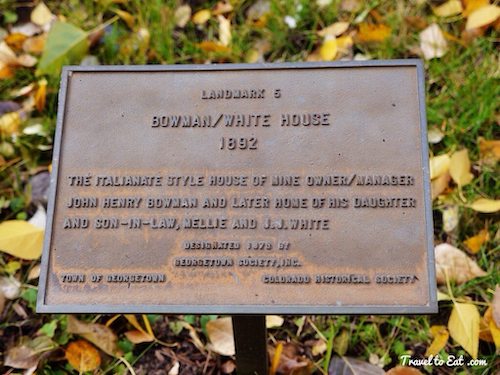
Bowman/White House, 901 Rose Street, 1892: This house was built by John Henry Bowman, owner and manager of silver mines, in 1892. Later his daughter married John James White, a local attorney who became mayor. They lived in the house until 1974. It combines the Italianate villa style with elements of Gothic revival and Queen Anne.
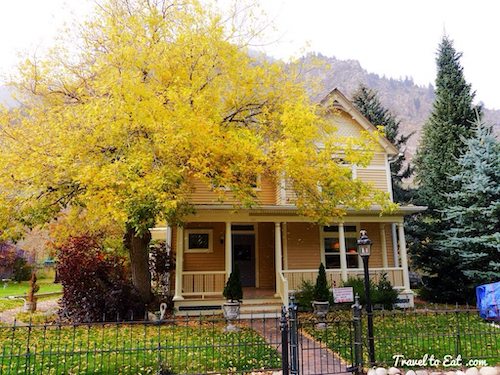
Robeson House, 811 Rose Street, 1899: This was probably the last Victorian home built in Georgetown. It was built in Queen Anne style for Jacob Robeson who was the superintendent for the Dives-Pelican mine and active in local politics. His father Solomon Robeson participated in the great gold rush of 1859. The irregular roofline, asymmetrical massing and the variegated ornamental shingle design in the gable end are all typical of the style.
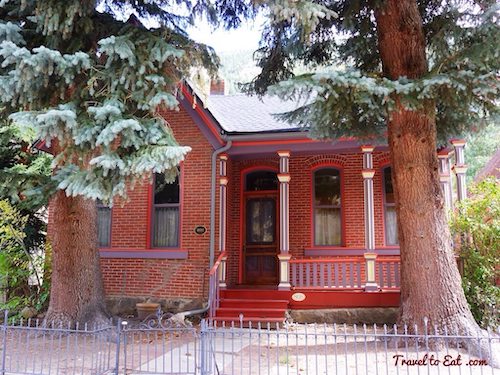
Nelson House-Catholic Rectory, 808 Rose Street, 1881: This house was built by Albert Nelson in 1881, owner of the Parlor Saloon. In the 20th century the Catholic Church bought the house for a rectory.
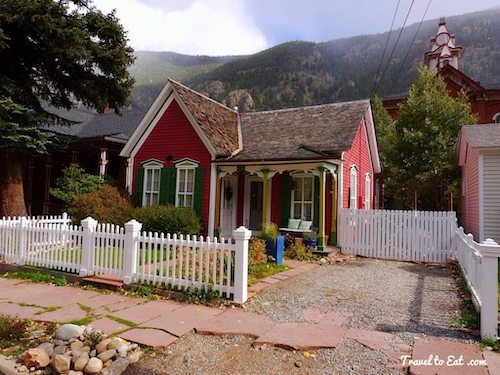
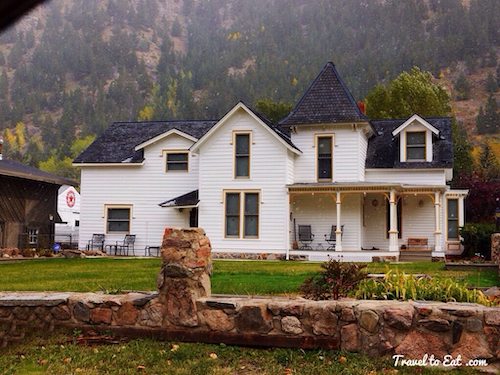
Dunderberg Mining Company Office, 314 Taos, 1879: This is the only house that I am uncertain about the name. Nonetheless it is a beautiful house. In 1879 eastern capitalists bought a group of mining properties including the highly productive Dunderberg and East Terrible mines. This building was constructed as living quarters and office space for the company.
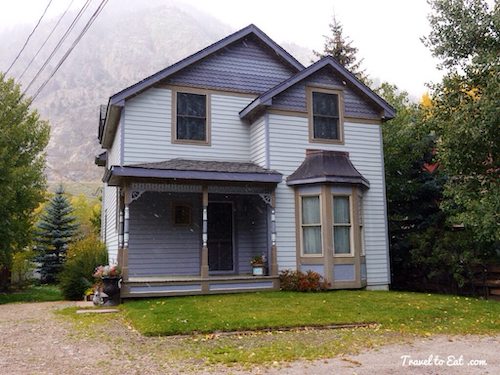
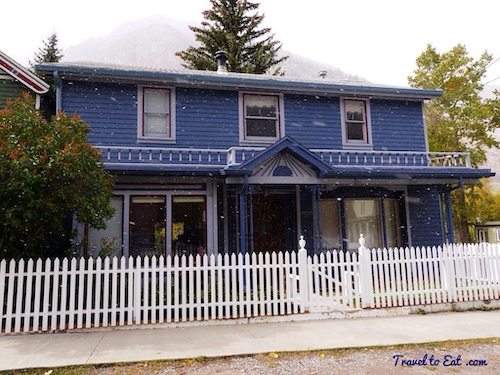
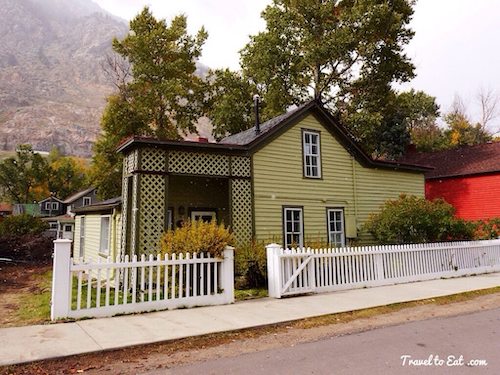
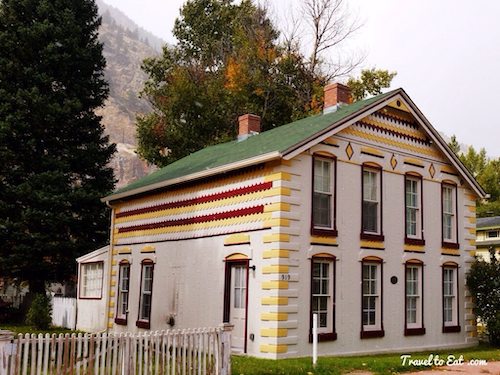
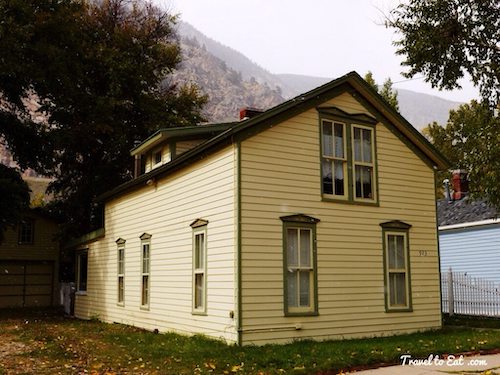
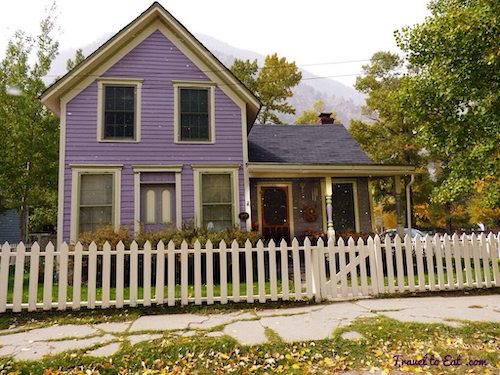
These eight houses, 901-931 (odd numbers) were built in the early 1870s and have changed little since that time. The house at 919 Taos is one of the most unusual houses in town. Built in an Italianate style, it has decorative shingles on the second story and vertical boards with metal strips made from tin cans over the seams on the first story. 905 Taos has undergone a fair amount of modernization.
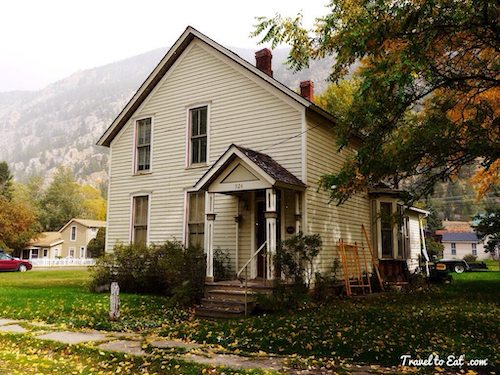
Allen House-Presbyterian Manse, 924 Taos, 1882: Sam Allen, a miner from Empire, Colorado built this vernacular wood-frame house with Greek Revival elements. The entry is offset and has a small gable-roof porch with slender Georgetown posts. In 1888 Allen sold the house to the First Presbyterian Church of Georgetown. The church bought the house with the intent of using it as a home for a full time minister. Unfortunately difficult economic times led the church to rent it for many decades. It was not until the 1990s that a minister resided there full time.
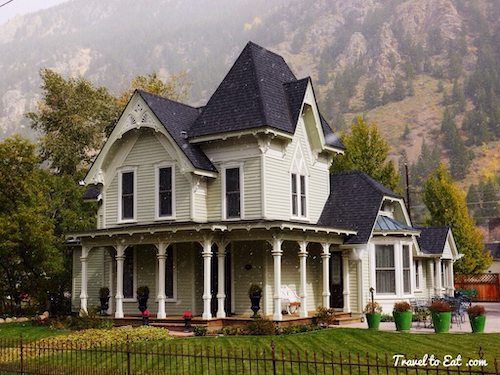
Bullock House, 910 Taos, 1881: The Bullock House was built by Charles Bullock, owner of a feed store and dealer in coal in 1881. The house is quite a bit larger than houses of the preceding decade which may be attributed to a lower cost of lumber with the new railroad. It has both Gothic Revival and Queen Anne elements. The roof shape is complex, displaying a combination of hip and gable with steep slopes. There is elaborate ornamentation on the wrap-around veranda.
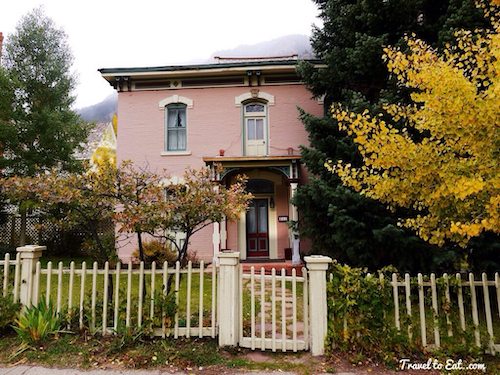
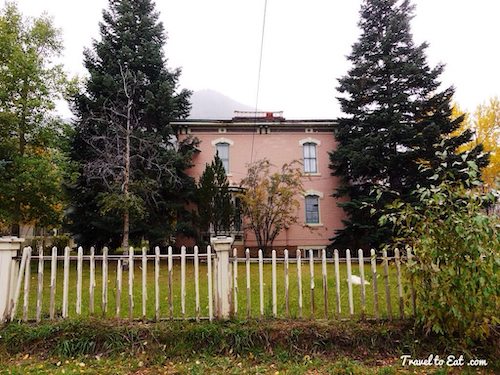
Clark House, 311 Argentine, 1875: This Italianate house was built by William Clark who became Colorado's first Secretary of State. It was sold in 1879 to Thomas Bryan who later became mayor of Idaho Springs in 1880.
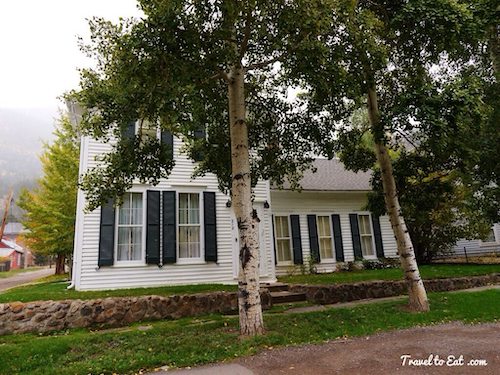
Monroe House, 212 Argentine, 1874: The Monroe House is is reminiscent of early new England, though without the symmetry of the classical colonial style. The shutters are fully functional with wrought iron hardware and are unique in Georgetown.
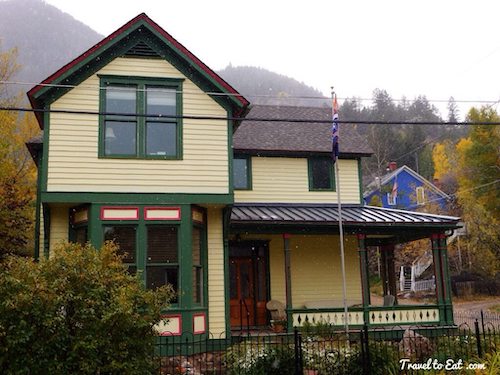
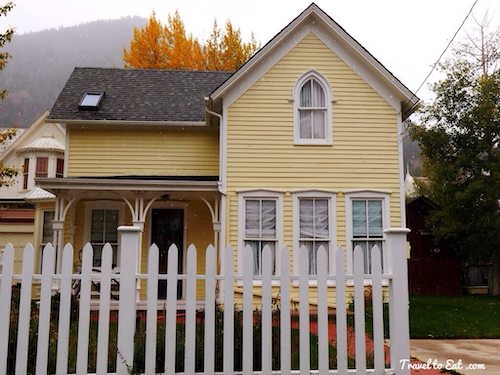
Hunter House, 704 4th, 1875: The Hunter House was built by Wesley Hunter in 1875, an investor in real estate and mines. It demonstrates a vernacular, wood frame gabled ell with Gothic elements.
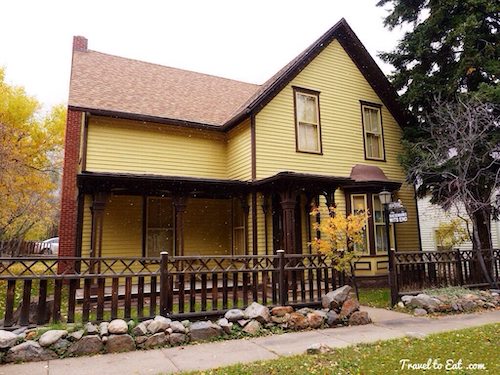
Marshall House, 201 Argentine, 1870: This house was built by General FJ Marshall, an early Colorado pioneer and formerly Commander in Chief of the Kansas militia. He was active in mining and civic affairs in Georgetown. In Kansas he had served in the first and second Territorial legislatures, and the Legislative Council of Kansas had appointed him Brigadier General of the State Militia. Upon arrival in Georgetown in 1866 he founded the Marshall Silver Mining Company.
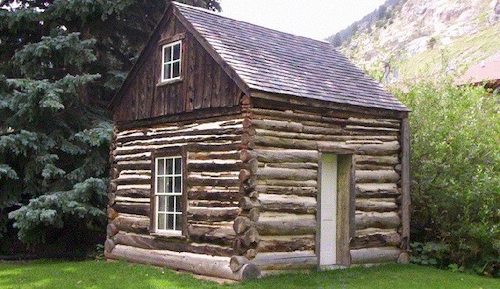
Of course not everyone who lived in Georgetown had a beautiful house. The one room Johnson log cabin was built in the 1860s and is typical of hastily erected structures to protect miners from the elements. Little is known of the builder, Francis Johnson, who stayed in town only briefly before moving on.
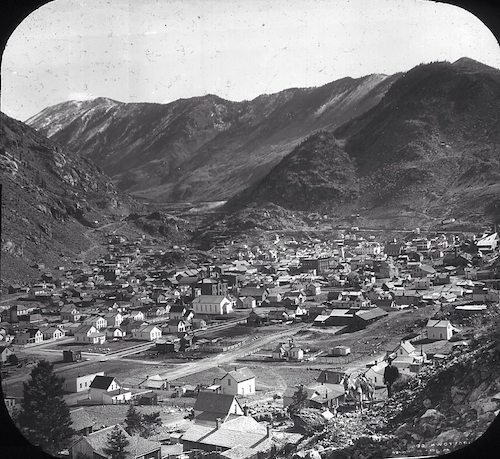
I hope you have enjoyed these beautiful Victorian houses and the community stories that accompany the buildings. There are many more houses than I had room to include in this post and there are periodic tours of the private houses and lots of things to do, see and eat. If you are in Denver, I hope you will consider visiting the beautiful community of Georgetown, just an hour up I-70.
References:
Historic Georgetown: http://historicgeorgetown.org/Museums.html
Georgetown in the Fall: /georgetown-in-the-fall-colorado/

